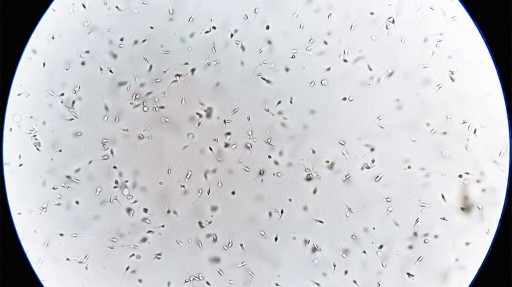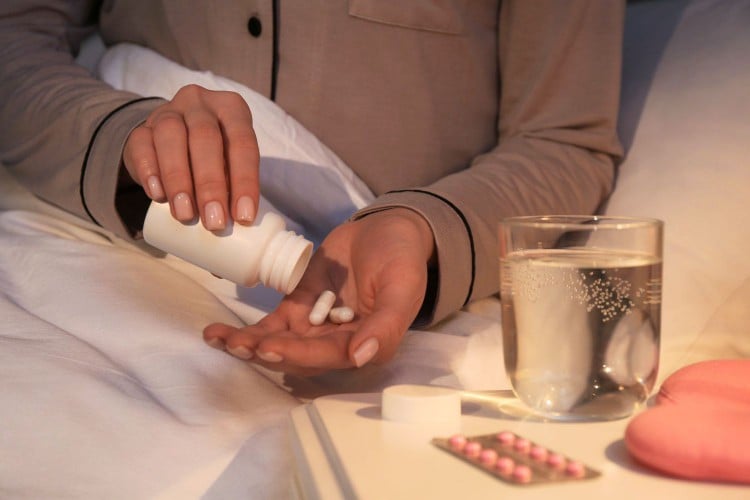
Up to 3% of the global adult population has eczema, also known as atopic dermatitis.
Researchers say the continuous itching and visual aspects of eczema can harm a person’s quality of life and mental health.
They report that 72% of people with eczema say they have adverse mental health symptoms for one to 10 days a month, with 17% having symptoms for more than 11 days per month.
As much as 3% of the world’s adult population has eczema, also known as atopic dermatitis.
Eczema is a chronic inflammatory skin condition causing extremely dry, rough, and itchy skin.
There is currently no cure for eczema. Although there are medications to help treat the disease’s symptoms, experts say the constant itching and visual aspects of the condition can harm a person’s.
Previous research shows that atopic dermatitis cana person’s mental health and psychological state.
Now, researchers from the National Eczema Association report that 72% of people with eczema have adverse mental health symptoms for one to 10 days a month, with 17% having more than 11 days per month.
The findings were published in the journal Annals of Allergy, Asthma & Immunology.
Is there a connection between eczema and mental health?
“Our study confirms this association but adds to past research by determining how often these mental health concerns are being discussed in atopic dermatitis care settings,” Loiselle told Medical News Today. “In this abstract, we focus specifically on atopic dermatitis patients seeing an allergist as their primary atopic dermatitis care provider.”
Apublished in January 2020 reported that adults with eczema are more likely to develop new diagnoses of depression and anxiety, with depression correlating to eczema severity.
In addition,published in March 2021 reported that a significantly higher number of people with atopic dermatitis said they experienced depression than those without the condition.
An unmet need for addressing mental health concerns
For this study, Loiselle and her team conducted an online survey, which was completed by 954 adults with atopic dermatitis.
Of those surveyed, 23% were currently seeing an allergist for their eczema and 124 of the respondents were seeing their or their child’s primary care eczema provider as their allergist.
Through survey data, researchers found that 72% of respondents reported having adverse mental health symptoms for one to 10 days during the month. Another 17% said they experienced more than 11 days of negative mental health.
“This prevalence is more concerning than it is surprising as there is a large body of research showing the association between atopic dermatitis and poor mental health, especially for those with moderate to severe atopic dermatitis,” Loiselle said. “There is a tremendous unmet need to more effectively address mental health concerns among atopic dermatitis patients.”
The need for eczema holistic care
Through the online survey, Loiselle and her team also found that 35% of respondents said they had never brought up mental health concerns with their allergist and 57% reported their allergist had never asked them about their mental health.
Loiselle said the significance of these findings is that they point to the need for holistic care for atopic dermatitis.
“While a focus on alleviating skin symptoms is important, it is clearly missing additional issues of importance to patients,” she explained. “Since the presence of other atopic co-morbidities exacerbates the connection between atopic dermatitis and mental health, allergists are in a unique position to alleviate symptom-associated emotional burdens. But there is an opportunity to enhance the standard of care by inviting discussion around mental health with patients beyond the impact on their skin and by awareness and willingness to refer to mental health resources and other healthcare professionals who can help.”
“As appointment time can be limited, general questioning regarding mood, emotion, sleep, and frequency of symptoms could provide a starting point to engage patients about their mental health,” Loiselle added. “Focused mental health evaluation instruments such as thecould also be considered or evaluation of sub-elements of other patient-reported outcomes instruments such as the(ADCT), which takes one to two minutes to complete and includes questions on sleep and mood.”
How eczema affects mental health
Medical News Today also spoke with Dr. Alexis Young, a dermatologist with Hackensack University Medical Center in New Jersey, about this study.
Young said she was not surprised by the survey’s findings as living with an uncomfortable rash is a chronic challenge.
“Itch sensation is carried by the same nerve fiber as pain and as such can be incredibly disruptive to a patient dealing with a skin disease — like atopic dermatitis — both during the day and at night,” she explained. “Because itch is often worse at night, it can impair sleep. Poor sleep may create difficultiesthat, in turn, may leave a person more vulnerable to depression. Additionally, depression is associated with sleep difficulties such as shortening the amount of restorativea person gets each night.”
“Lastly, this study reinforces the vicious cycle that patients dealing with this condition are in,” Young added. “The more anxiety they may feel, the worse their condition can be becauseis a common trigger for atopic dermatitis flares.”
Young said that healthcare providers are already asking patients not only about their physical state but their mental state as well.
“I think the results of this study are helpful in terms of driving the conversation,” she continued. “We now have concrete data that we can cite to advance the mental health conversation with our patients.”
And while a growing number of studies have found that eczema is a risk factor for both anxiety and depression, Young said the data is still inconclusive.
“I do believe we need more robust studies to investigate the broader impacts on quality of life and overall well-being,” she added.








